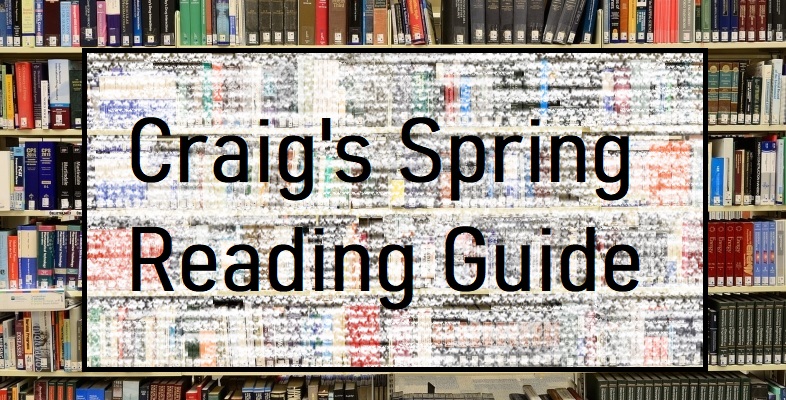
I have four categories of books here. They overlap a little, based on four possible psychological approaches to our current conditions. Rather than mention specific titles, I prefer a broader approach dealing with collections based on one writer or even a genre.
My philosophy here is based on an analogy. Christopher Morley created a book seller who appears in at least two of his novels (One is called The Haunted Bookshop.) This man views his profession not as a business, but as a medical service. He studies his customers and then, using his own choice of verb here, prescribes the appropriate title. I’d like to think this brief guide does the same.
1.) Use books to do what you can’t do now. The number one thing we cannot do, the love of which all Americans have deeply ingrained, is travel. Therefore, I prescribe travel books. There are thousands of these, the genre being older than the invention of printing. Marco Polo is after all, not just a game you play in the swimming pool but the author of a travel book dating to circa 1300. My personal favorite writer in the genre is Bill Bryson (his name will come up again) who has written roughly a half dozen such books. He is both funny and informative. The most informative travel writer is Paul Theroux. If you read his complete collection of travel books, you have toured the globe. The funniest travel writer is Dave Barry. In fact, he is primarily a humorist and, as I am sure he would confess, if you learn anything from his travel books, it would be a happy accident.
2.) Escapism. I suggest Dave Barry more for this category. Barry was a newspaper columnist for many years. For those under thirty, a newspaper is an artifact of the time when the Internet was printed on paper. His column was a humor column, and I probably stole the previous sentence from one of those columns, or at least the idea for it. Most of his books are collections of those columns and all of them are hilarious. Speaking of hilarious, I suggest Patrick McManus. I neither hunt nor fish, and all his books are about these outdoor activities. Yet, even without any direct connection to the Great Outdoors, I love his books. Like Barry’s books, they are collections of columns he wrote for other venues. My all-time favorite escapist author is P. G. Wodehouse whose most famous creation is the all-knowing butler Jeeves. All his books are about the idle rich of early 20th-Century England. There are no actual jokes told in these funny stories, but the circumstances and the style make for a permanent grin.
3.) Learn about your circumstances. This is the opposite of escapism. Some mindsets prefer to be as fully informed as possible. I recently read The Great Influenza by John Barry about the 1918 flu and was stunned at the parallels to modern times. It also offered a primer on the basic biology of our present-day problem, though one must admit it is a tough subject. If you want the most understandable guide to human biology, Bill Bryson’s most recent book is called The Body. Using his travel writer methods, he gives us a guided tour of anatomy.
4.) Lastly, you can combine items 3 & 4 by embracing the dark side of escapism via the specialized genre of the medical thriller. Be aware of that word: thriller. It means an emotional roller-coaster and when you are living on such a roller coaster, this might not be for you. I used to read widely in this genre and found that the best of them were written by doctors who wrote fiction, at least initially, as a sideline. For their plots to function, the reader had to be instilled with a certain amount of medical knowledge. You read for the excitement but come away with the rudiments of a functional medical vocabulary. Robin Cook, the modern perfecter of the genre, explicitly states this as one of his goals. Others to consider: Michael Palmer, Tess
Gerritsen, Michael Crichton, and if you can chase down some older titles, the inappropriately named Dr. Frank Slaughter –interesting this last one in that he once sold books by the tens of millions and is now virtually unknown.
I conclude with a disclaimer. This guide is based on my own reading, admittedly more than a little scattershot. I am not an expert on any one writer or in any particular genre. I am, however, an enthusiast for all good books. I prescribe them no matter the circumstances. Better yet, I prescribe that you create your own guides and share them.
Craig Magee
